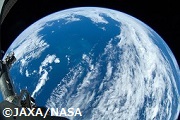| タイトル | Applying Geospatial Technologies for International Development and Public Health: The USAID/NASA SERVIR Program |
| 本文(外部サイト) | http://hdl.handle.net/2060/20120002853 |
| 著者(英) | Irwin, Dan; Hemmings, Sarah; Limaye, Ashutosh |
| 著者所属(英) | NASA Marshall Space Flight Center |
| 発行日 | 2011-10-29 |
| 言語 | eng |
| 内容記述 | Background: SERVIR -- the Regional Visualization and Monitoring System -- helps people use Earth observations and predictive models based on data from orbiting satellites to make timely decisions that benefit society. SERVIR operates through a network of regional hubs in Mesoamerica, East Africa, and the Hindu Kush-Himalayas. USAID and NASA support SERVIR, with the long-term goal of transferring SERVIR capabilities to the host countries. Objective/Purpose: The purpose of this presentation is to describe how the SERVIR system helps the SERVIR regions cope with eight areas of societal benefit identified by the Group on Earth Observations (GEO): health, disasters, ecosystems, biodiversity, weather, water, climate, and agriculture. This presentation will describe environmental health applications of data in the SERVIR system, as well as ongoing and future efforts to incorporate additional health applications into the SERVIR system. Methods: This presentation will discuss how the SERVIR Program makes environmental data available for use in environmental health applications. SERVIR accomplishes its mission by providing member nations with access to geospatial data and predictive models, information visualization, training and capacity building, and partnership development. SERVIR conducts needs assessments in partner regions, develops custom applications of Earth observation data, and makes NASA and partner data available through an online geospatial data portal at SERVIRglobal.net. Results: Decision makers use SERVIR to improve their ability to monitor air quality, extreme weather, biodiversity, and changes in land cover. In past several years, the system has been used over 50 times to respond to environmental threats such as wildfires, floods, landslides, and harmful algal blooms. Given that the SERVIR regions are experiencing increased stress under larger climate variability than historic observations, SERVIR provides information to support the development of adaptation strategies for nations affected by climate change. Conclusions: SERVIR is a platform for collaboration and cross-agency coordination, international partnerships, and delivery of web-based geospatial information services and applications. SERVIR makes a variety of geospatial data available for use in studies of environmental health outcomes. |
| NASA分類 | Earth Resources and Remote Sensing |
| レポートNO | M11-1124 |
| 権利 | Copyright, Distribution as joint owner in the copyright |
|

